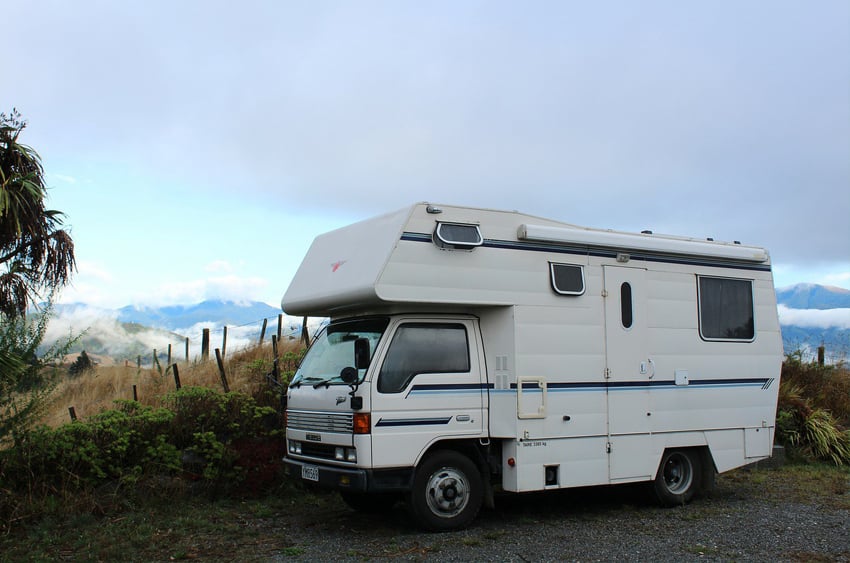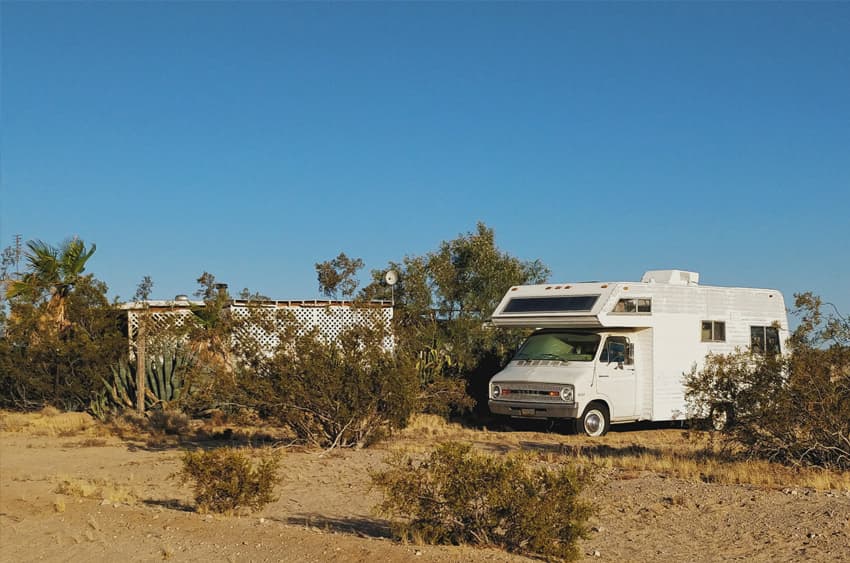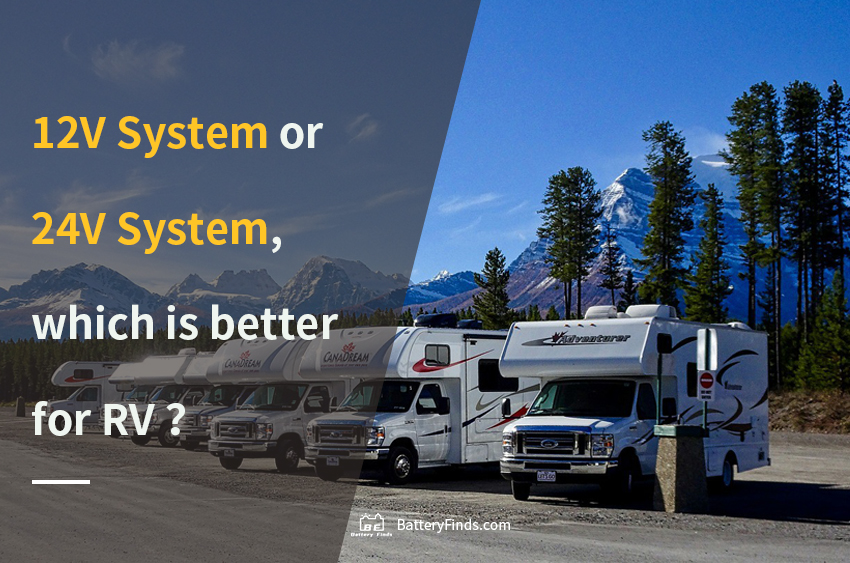12V system and 24V system are two of the most popular electrical systems out there, especially in RVs. Most RVs use these two systems, but because the voltages of the two systems are different, the specific performance will also be different.
What's Different between 12V System and 24V System?

First, the biggest difference between the two systems is the voltage. Since voltage is a physical quantity required to push electrons to move (that is, current), this physical quantity also affects the magnitude of the current, which changes the performance of the entire system.
● 12V System
The 12V system is currently the most widely used. Not just RVs, vehicles, remote controls, electronic watches…these all use 12V systems in our lives. Although the 12V system seems to be unsuitable for the use of the vehicle, the vehicle’s electrical components such as the starter, lighting system, and ignition system are designed to be compatible with 12V.
To a large extent, the advantages of the 12V system are based on historical problems. Because in the past, 12V was enough to use, and there was no need to use a larger voltage system, but now the technology is developing faster and faster, and more advanced equipment needs to use a higher voltage to promote the use. It seems that the 12V system is increasingly unable to meet our needs. Nonetheless, most devices today use a 12V system.
Similarly, RV is no exception. The 12V system can meet the most basic equipment of RV, such as living lights, refrigerators, etc. The excellent versatility determines that the 12V system can play a great advantage on the RV. And 12V batteries tend to be smaller and take up less space than 24V batteries. This is great for reducing space pressure and counterweight issues for some small RVs.
However, the shortcomings of the 12V system have also been mentioned. In the face of more and more electrical appliances, the 12V system has become more and more unsatisfactory. In addition, in a circuit with the same power, if the voltage decreases, the current will increase, which means that there will be higher heat generation in the 12V system circuit, which will eventually cause resistance loss and reduce the overall performance efficiency.
● 24V system
At present, the 24V system is the direction that many electrical equipment manufacturers are moving forward. The reason is simple, 24V systems support more types of electrical equipment and have lower wiring costs. Although it is currently not directly compatible with many 12V devices, this is the future direction, just like when the 6V system was converted to a 12V system. Currently, 24V systems are suitable for certain RVs equipped with solar systems, heavy-duty trucks, large buses, trolling boats, etc.
The advantages of the 24V battery system are obvious. Due to the smaller current, the resistance loss of the 24V system is much smaller than that of the 12V battery system, which is safer and lowers the wiring cost. Moreover, the 24V system has a low cost in the motor and inverter. More efficient operation. This is a big advantage on some medium and large RVs.
However, the main disadvantage of this system at present is that its versatility is relatively low. In most RVs, if you need to use 12V power equipment normally, you need to purchase an additional step-down device to reduce 24V to 12V in some circuits. Meet the use of equipment such as lighting systems and ignition starters.
How to get a choice between them?

Obviously, there is no answer to this. Because you need to determine your actual situation to make a choice. Regarding RV electrical systems, if your RV is small, such as Class B, Toy Hauler, Pop-up, etc. With limited space in the car and limited use of electrical appliances, a 12V system may be more suitable. However, for a large RV such as Class A and 5th Wheel, a higher voltage 24V or even 36V, 48V system will be more suitable, because the car space is large, the number of electrical appliances that can be accommodated, and the wiring cost can be effectively reduced.
Therefore, whether it is a 12V or 24V system, it has its own applicable range, and there is no absolute good or bad. When you decide to upgrade the electrical system for your RV, you might as well consider using LiFePO4 batteries to combine the 24V system, this battery is safe and reliable and can guarantee your RV will bring you a better experience.


Good day im a newbie who has 1 solar set up on my 5th wheel which i live in. My current 12V system is not adequate for my editing and data processing using a computer with 3 monitors .
Question is should i build a seperate system (24V) and will 2 x 500watt panels and 1 battery capable enought to operate my electronics .